The instructions were simple. In honour of International Women’s Day, tell us about the women who inspire you.
The stories, submitted by members of the McGill community – students, staff, faculty, administration, and alumni – are spectacular.
Whether they led the British Empire or a community dance class, the women on this list all have one thing in common – they have had a profound impact on people’s lives. Sometimes that impact has changed the course of history, others have changed the course of a single life. All have made a difference.
Interestingly, three of the people who submitted to our list (Cindy Blackstock, Shanice Nicole Yarde and Angela Campbell) were also named as inspirations by others.
Because there were no specific guidelines, the stories below vary widely in style and length. One common thread pulling all these stories together is gratitude. These very personal reflections are rife with love and admiration, be it for Nobel laureate Marie Currie or for the educators of the McGill Daycare.
Suzanne Fortier, Principal, McGill University, on Brenda Milner
There is no shortage of inspirational, trailblazing women at McGill. One shining example is Brenda Milner, the Dorothy J. Killam Professor of Neurology and Neurosurgery. An alumna of McGill, Professor Milner is the world authority on memory whose long-spanning career has garnered international acclaim. She is a trailblazer for women in academia and in the field of clinical neuropsychology, an area of study that she is credited for establishing.
Perhaps what really stands out is Professor Milner’s seemingly insatiable curiosity, as well as her drive to contribute to knowledge and improve people’s lives. Even today, at the age of 102, she continues to dedicate herself to training the next generation of scientists. By sharing her deep love of learning with our community, Professor Milner is an inspiration to all of us, both on this International Women’s Day and every day.
Shanice Nicole Yarde, Equity Education Advisor (Anti-Oppression & Anti-Racism), on Cheryl Yarde and Maya Angelou
Cheryl Yarde is my mother but beyond that she is an educator, advocate, and community leader. She is deeply committed to serving her community and has always taught me about the importance of using my voice and power to fight for change.
“Do the best you can until you know better. Then when you know better, do better.” These words by our ancestor Maya Angelou serve as a daily reminder. She was powerful and multi-talented and inspired generations of people to be bold and brave. What a phenomenal woman indeed!
Victor Chisholm, Student Affairs Administrator, Faculty of Science, on Sister Rita Clare
The Hungarian ethnomusicologist Zoltán Kodály wrote: “It is much more important who is the music teacher in [the town of] Kisvárda than who is the director of the opera house in Budapest… for a poor director fails once, but a poor teacher keeps on failing for thirty years, killing the love of music in 30 generations of children.”
Had Kodály spun this in positive rather than negative terms, and had he lived a few decades later in Sydney, Nova Scotia, Canada, I think he would have written about Sister Rita Clare (1933-2017). She was a driving force behind music in Cape Breton.
I took it for granted to have music lessons in school, and band and choir as after-school programs; but in years when budgets were tight, Sr Rita Clare’s work as the school board’s music consultant kept music off the chopping-block. In addition to teaching music in the public school system, she also founded a community choir for adults (Cape Breton Chorale) and another for teenagers (Cape Breton Youth Choir).
After I moved away from Nova Scotia, I was surprised and disappointed to learn that my peers from other parts of Canada didn’t always have those kinds of musical opportunities in public school or in the community. Directly and indirectly, Sister Rita Clare brought lifelong joy to thousands of people. I am one of them. So many of my richest experiences in life wouldn’t have happened without her. I wish that I had properly thanked her while she was still alive.
One day, I will visit the Budapest Opera again, maybe even Kisvárda, and think of her. For now, I am grateful to Sister Rita Clare and my other music teachers, many of whom are also women.
Carola Weil, Dean, School of Continuing Studies, on Ineke Cronheim
My late aunt (actually cousin once removed) Ineke Cronheim, who survived World War II, the Nazi occupation of her home country, The Netherlands, to join what now is called the International Organization for Migration (IOM) in Geneva, Switzerland for whom she worked for 30 years resettling refugees and migrants in Europe. She was the first professional woman and mentor to me that I had met. She (together with my father) shaped my career choices in international relations, and taught me that determined women CAN succeed even in the face of obstacles.
Catherine McArdle Kelleher, who was one of the first women to receive a PhD in Political Science from MIT, and who recruited me into graduate school to study national security, and who was my advisor for my first graduate degree in public policy, my mentor and boss, who co-founded Women In International Security (WIIS) (which now has a student chapter here at McGill) with a group of women including me in tow . She too informed my professional career path that women must be part of decisions about foreign and defence policies. She taught me the importance of bringing others along with you in all you do, and of sticking to your core values.
Will Straw, Professor, Art History and Communication Studies, on Caroline Bem, Susana Vargas and Cheryl Thompson
I think the three women who have inspired me most in the last 2-3 years are Dr. Caroline Bem, Dr. Susana Vargas and Dr. Cheryl Thompson. They’re all graduates from our program and each, in a difficult academic job climate, landed a tenure-track position (at St. Paul University, Carleton University and Ryerson University respectively.) Their work is changing our field in exciting and important ways.
Angela Campbell, Associate Provost (Equity and Academic Policies), on Rosa Campbell
I am lucky in that I have been inspired and mentored by people of all genders. But if I had to pick just one bright light on this international Women’s Day, it would be my mom, Rosa (D’Archi) Campbell. From her, I have seen the potential that can be realized by combining courage and grit with a heart of gold.
Elena Bennett, Canada Research Chair in Sustainability Science, on her mother and two grandmothers
I am very lucky to have interacted with many women who inspired me, including some amazing academic mentors. Today, which happens to be my mom’s birthday, I want to tell you about three non-academic mentors who have been particularly impactful: my mom and my two grandmothers. All three had advanced degrees in science and math (my mom in pharmacy, my dad’s mother in chemistry, and my mom’s mother in accounting) and all three had meaningful careers in those fields.
Besides being educated, both of my grandmothers were smart and very hard-working. I never wondered whether it was ok for a girl to have a career (they both did) or whether it was ok for a girl to be smart or to work in science and math (they both did). Their hard work cleared that path wide open for me. And they never let me forget that it wasn’t enough to be smart – hard-work was essential to making the most of any talent you might have.
As a kid, I sometimes I got to work with my mom at the pharmacy and was able to see how good she was at her job. Like my grandmothers, she worked hard, and she loved her career. But what I learned most from my mom was the magic of mixing intelligence, hard work, and empathy. My mom has an an incredible gift for making people feel heard. Listening to what people were feeling about their health, and combining that insight with her incredible memory helped my mom make sure each person who came into her store had the right medications and was taking them correctly.
So, while I’ve been lucky to have amazing female mentors in the academic space, today I’ll take the time to say thank you to three women who inspired and encouraged me outside the academic arena.
Sonia Esteves, course lecturer, School of Continuing Studies, on Carole Anglade
I would like to talk about a friend of mine, Carole Anglade. She immigrated to Quebec for her studies because she wanted to make a PhD. After getting a Master degree, she finally started her PhD. Seven years and three kids later, she finished it in January, during the pandemic. The jury recognized her incredible work which can help people who have aphasia.
I admire my friend because she is passionned about her job and she is an incredible mom. And, all of us know, it’s not easy to succeed in both jobs.
Robert Leckey, Dean, Faculty of Law on Cindy Blackstock and Catherine Leckey
I am inspired by so many women that the McGill Reporter’s ask swiftly led to a “shortlist” more than 20 names long. I’ll mention just two. The first is Cindy Blackstock, OC, FRSC, a Gitxsan activist for child welfare, executive director of the First Nations Child and Family Caring Society of Canada, and professor in our School of Social Work. Cindy’s principled, relentless, and hard-hitting advocacy for First Nations children inspires, in particular the clarity with which she articulates her demands and calls out discrimination and other forms of injustice.
The other is my mother, Catherine Leckey. Her courage, strength, and openness to others during my father’s terminal illness and in facing widowed life constantly inspire my husband José and me. As for her impact on my life, her and my father’s adoption of me changed my potential paths irrevocably. I want to highlight her persistence in getting to the bottom of the health issues (caused, it turned out, by allergies to dust and a medication) that made me hyperactive as a young child and almost led to my being sidelined into classes for children with behavioural problems.
Kendra Gray, Internships Officer, Office of Student Academic Services, on the Reverend Kathleen Buckley
The Reverend Kathleen Buckley listened with her heart, spoke volumes with her eyes, lead with her values, and was guided by her conscience. I met Kathleen at the beginning of my undergraduate career, and was immediately taken in by her energy and independent spirit. For me, her impact isn’t so much measured in what she did but rather how she did it. Everything she did was accomplished with grace, humor, love, and often a hearty laugh.
A lover of the outdoors, she would organize trips for students to canoe, cross country ski, or hike, and when she came upon a vista, she would look over the expanse and exclaim “God is wild!” I later learned that this was a short version of a longer sentiment: “I am more than ever convinced that God is wild – and the Spirit will not be tamed by any human effort.”
Kathleen pushed boundaries. She accepted invitations to play beer pong (in her case, with water) at fraternity houses and would show up wearing a rainbow tied died t-shirt with a Roman (ministerial) collar. Her Sunday evening service version of “breaking bread” was a raspberry and cheese croissant. She fought for justice, and was committed to advocacy for LGBTQ people, religious minorities and people of colour. Her God had female pronouns. For her, speaking her truth was more important than biting her tongue and following someone else’s direction. And she stepped down from organizations when she could no longer subscribe to their rules. (She was ordained in 1986 but four years later, resigned from her position; at the time, her denomination did not allow LGBTQ clergy in relationships. Eventually she changed denominations.)
But most of all, she practiced hospitality. Kathleen’s office door was always open. She invited students to her home for dinner (regular suppers and holidays). She organized trips and drove me and a van full of students to New Yorks City and to various outdoor adventures.
One exam period, I was in a less-than-ideal living situation and having a tough year; she knew I was unhappy and invited me to spend the weekend at her home. I thanked her but politely declined, not wanting to intrude. She responded by calling her partner on the phone, handing me the receiver, and had her partner reiterate the invitation, insisting they weren’t simply being polite; they were extending a genuine invitation. I accepted the hospitality.
Led by her conscience, she didn’t get bogged down in other people’s expectations because she knew where she was going. And she brought everyone along. And others noticed.
“Not only did her infectious laughter and candy bowl drawn people to her, but her depth of spirit and agile mind made room for everyone. She offered guidance and grounding to so many people, and she did it through hospitality, openness, and inclusivity. When Kathleen said “all are welcome”, she meant it. … We watched how she handled conflict, always seeking reconciliation, and definitely not seeing persons as enemies if they were on the other side of issue.” (Shaun Whitehead)
Of Kathleen, the president of St. Lawrence University Williams L. Fox said “Her leadership was about difference – making a difference. And in the end, that difference doesn’t really mean much at all. Because we are one human family. Kathleen’s great gift to this campus was a ministry of hospitality. She made us feel welcomed. She invited us to sit down around the table that we might reason together, and know each other in the deep down places of the heart.”
When it was announced in January 2020 that Kathleen had lost her battle with cancer at the age of 66, I and so many others was devastated. Seldom does one come across a soul so genuine – and so wild.
Maya Angelou apparently said “At the end of the day people won’t remember what you said or did, they will remember how you made them feel.” What strikes me about Kathleen is that those of us who knew her remember both what she did and also how she made us feel.
Hiba Zafran, Assistant Professor, School of Physical and Occupational Therapy, on Meryem Benslimane
Meryem Benslimane, Equity Education Advisor, Office of the Provost and Vice-Principal (Academic), is a humble behind-the-scenes woman who shines the spotlight on others but never herself. She has created amazing trusting relationships with minority student, facilitated the development of a real community as co-chair of the Subcommittee on Queer People (SQP) at McGill, and advocated and implemented the first ever university-based Queer History Month in Canada in order for that community to thrive. She really knows how to value and validate those of us who are invisible.
Meryem has done that for me, in her characteristic gentle manner. She invited me into a leadership position believing in me when I wasn’t sure at all and modelled her gentle community-building approach without ever telling me that is what she was doing. She always tailors herself to where people are at in her diplomacy, never pushy, yet also perseverant. It is amazing how much change she has fostered in just three years without ever compromising her ethics and humble stance. As incoming Chair of the SQP, and on behalf of many of us, I definitely name Meryem Benslimane as an inspiration in the original Latin meaning of the term: One who guides.
Steph A. Pang, Resident physician, Internal Medicine, Faculty of Medicine and Health Sciences, on Meryem Benslimane
Meryem Benslimane is an inspiration to me. She is like a rainbow, because she brings colourful spirit, warmth and hope. I feel very lucky to have her both as a colleague in equity projects and as a caring friend. She shines with her vibrant passion for advocating for issues including gender equity, racism, and migrant justice. She takes great care to highlight the need for intersectional approaches. Having attended her education workshops, I am inspired by how she creates safe non-judgmental spaces for learning, as participants engage with challenging, sensitive topics. When she facilitates community events, she brings a remarkably warm presence that helps people feel at ease and be themselves.
As we worked together on committees, I realized that her leadership style resonated with me very much, because it is kind, inclusive, and affirming. Always humble, she brings a team together by uplifting voices across all spectrums, spanning undergraduate students to staff, all genders, and cultural backgrounds. When she notices that an initiative is missing voices from certain marginalized communities, she will actively reach out to make a seat for them at the table. Outside of work, she brings sparks of joy to my days – whether through her heartwarming self-composed songs, enthusiasm for all things Eurovision, words of encouragement, and delicious chocolate baked treats.
Meryem is now leaving McGill as she undertakes new endeavours. It has been a wonderful three years working together and becoming friends. I will dearly miss having her at McGill, as will many others, and I am wishing her all the best for the future. Whenever I think of Meryem and what she brings to those around her, I feel happy. She brings me hope and strength to keep working towards a gentler world.
Cindy Blackstock, Professor, School of Social Work, on Alanis Obomsawin
Alanis Obomsawin is an iconic Abenaki documentary film maker, artist, story teller, activist, fashionista, gourmet cook, a recipient of numerous awards including an Honorary Doctorate from McGill University, and a lover of all children. I am blessed to call her a friend and mentor. For Alanis, human rights and Indigenous rights are not topics of discussion; they are imperatives for action to honour the distinct and collective dignity of all peoples. Never a bystander, she lifts people up and is the first to speak up when people are put down. Over her long career at the National Film Board she has made over 50 documentary films telling the story of peoples who have called the lands now known as Canada for thousands of years. Her films show the dignity, wisdom, strength, humour and generous spirit of the peoples who saw the European “founders” come.
Sacha Young, Ethics Review Administrator, Faculty of Medicine and Health Sciences, on Shirley
I cannot say that there is any singular woman who has influenced my life; many have shaped my world views and have a special place in my heart and mind. When I think of those who reverberate in my mind, whose voice I hear at different moments in life, I think of the storytellers. People like my sister, Daphne, whose talent as a writer and her incredible wit and intelligence were seen at an early age, a former colleague whose stories about her journeys through life still elicit wondrous images in my mind both the fantastical and grotesque.
Then there is Shirley. Shirley, one of Montreal’s own, became my own personal guide and teacher of all things Montreal, when I first arrived in this city at the tender age of 19. A former business owner, photographer, a person extraordinaire who was a wealth of knowledge on the city’s history, its diverse peoples, and a rolodex of “who’s who” in politics, journalism, sports, business, law…the list goes on. Shirley is one of those people who keep history alive and vibrant.
Through her, I saw a Montreal vibrant for its arts, music and culture, I learned about its segregation practices, I had a front row seat to her memories of the Quiet Revolution and, later, the October Crisis – her description of the atmosphere of the days of the War Measures Act were surreal and lingered. She shared stories of the years she photographed baseball – the Expos – and other professional sports during the 80s, as well as her stories of growing up around the Main, and the city’s reputation for all things criminal and debauched.
When I think of women who have influenced me, I think of those who have shared their stories with me and the treasure of life experiences I have learned through them. Each woman has given me access to a world that I may not otherwise see or experience; they have given voice to their lives and the world they inhabit. Women are a voice for life, humanity, and all things that have existed at one time or another. They display all that is human – our fears and dreams, our strengths and weaknesses, our prejudices and our ability to love others in unique and sometimes unexplainable ways. The women I have the pleasure of knowing and have known endure even when faced with unimaginable burdens. For this Women’s Day, I want to honour the storytellers for their unique ability to persist and share their stories.
Kimberley Stephenson, Trade Book Manager, LE JAMES Bookstore, on Fannie Lou Hamer
My pick is Fannie Lou Hamer – I don’t remember how many years ago I first saw film of her testifying for the Mississippi Freedom Party. She came from extreme poverty, became a civil rights activist and then suffered more brutality for continually trying to register to vote. She was imprisoned, beaten so badly by guards she had lasting physical disabilities; her testimony at the 1964 Democratic Convention was so powerful that Lyndon Johnson called an unscheduled press conference to pull the cameras away. Most people will know her for her phrase “I am sick and tired of being sick and tired.”
Very few will ever come close to her level of persistence and endurance and courage – and that’s why she inspires me.
Terry Young, Indigenous Student Advisor, First Peoples’ House, on Rosemary Young
When I think of the role of women in my life there about 30 women or more who come to mind. These women have in many ways shaped me into the man that I am today and have helped me to grow and develop in who I am as a Wolastoqew man.
But for the sake of this International Women’s day I am going to speak of my first home, my first love, my first teacher, my mother Rosemary Young. My mother will be 69 this year and has been on a very difficult journey over the past few years with losing my dad to whom she was married for 40 years and to losing many of her elder siblings. But even through all of this she has done her best to be resilient and to keep moving forward.
In the past few months my mom, who is a first speaker of our Wolastoqew language and one of a handful who are still living has taken on a role of teaching language in our community of Kingsclear. She works with 2 other elders and speakers to ensure that our language continues and will be in existent for many generations to come. For this mother I honour you and say Woliwon (thank you) for your being, for giving me life, for being a language warrior and most of all being Nikuwoss (my first home). Koselmol!
Sharon Webb, Administrative Coordinator, International Human Rights Internships, on Frances Helen Perry
For the ‘inspiring women’ segment on March 8, I would like to celebrate my grandmother, who also has a place in McGill history:
My grandmother, Frances Helen Perry, graduated top of her McGill class in physics in 1922 and was awarded the Anne Molson Gold Medal, the most prestigious award for an undergraduate in physics and mathematics at McGill. Anna McPherson received the same honour one year earlier in 1921, and Vicky Kaspi received it in 1989.
I was very young when my grandmother died, but I remain inspired by her brilliance, hard work, and courage in stretching the limits of women’s traditional roles at that time. During the Second World War, my grandmother taught physics and supervised a lab at McGill, inspiring other young women and men to similarly aim high and reach beyond. Next year will mark the 100th anniversary of her graduation and a century of increased opportunities for women to which my grandmother’s achievement contributed.
David Krawitz, Administrative Officer, School of Architecture, on Jeanne Noël Riddell
My maternal grandmother, Jeanne Noël Riddell (née Blanc), was born in Brooklyn on Christmas Day in 1897 to French parents who had fled from the Prussian invasion of Alsace in 1870. She moved as a teen to Saskatchewan with her mother and siblings when the father abandoned the family. She became a schoolteacher after attending a normal school in Saskatoon, and she married a sign painter who died young in an accident, leaving her with two little children and pregnant with a third. My mother was the eldest child.
During the thirties and forties, my grandmother worked in a variety of one-room schoolhouses in small towns across Alberta, raising her children as best she could in straitened circumstances. Somehow she managed to obtain a BA from the University of Alberta, which improved her job prospects. After settling in Ponoka near the end of her working career, she retired to Victoria where she died in 1983. She travelled widely in her retirement years. She visited me for a month in Paris in 1981 while I lived there, and we saw the town together. All thirteen of her grandchildren called her Grand’mère.
My grandmother did not complain and she discouraged it in others. She did encourage reading and bought me many books. Not an overtly religious person, she had great respect for the Virgin Mary, referring to her as the BVM in her diaries. She taught me how to write a thank-you letter and all the protocols and manners that went along with it. (I still love writing letters of all kinds.) When I thought I had finished with the foil wrapper from a pound of butter, she showed me how to flatten the foil and scrape the precious remainder off. She never forced anything onto your plate but made you eat what you had taken.
In every birthday card from her I found, to my delight, a two-dollar bill. After she died, my mother and her brothers were amazed but not surprised that she had managed to save as much as she had, given the harsh conditions of her life and her years of near-penury. She was a strong and resourceful woman, stern when she had to be, kind when the situation warranted. I loved and respected her very much. Throughout my life, I have used her as a standard against which I measure the behaviour and values of other people.
Samantha Poncabare, BA ’18, on Rachel Kiddel-Monroe and Jessica Farber

Rachel Kiddell-Monroe is a lawyer, human rights activist, and passionate leader for change. She currently serves as the Executive Director of SeeChange Initiative, a Board Director for Medecins Sans Frontieres, and Professor of Practice in International Development at McGill.
Rachel is known as a changemaker, often disrupting the humanitarian field with her radical approach; one which centres community self-empowerment, solidarity, and compassion. After spending over 25 years working in humanitarian aid, Rachel founded SeeChange Initiative, which works to decolonize health by accompanying marginalized groups to build innovative community first solutions to their health crises. She believes in the power of storytelling and in the unique approaches that women have to offer in forging a more peaceful, equitable, and harmonious society.
She has been recognized as a visionary for social change, most recently as the recipient of the 2020 YWCA Women of Distinction Award for Social & Environmental Engagement.
Jessica Farber is a community organizer and passionate advocate for social justice, health equity, and migrant rights. She is the Community Readiness Coordinator for SeeChange Initiative and serves on an Advisory Board for the Samuel Centre for Social Connectedness.
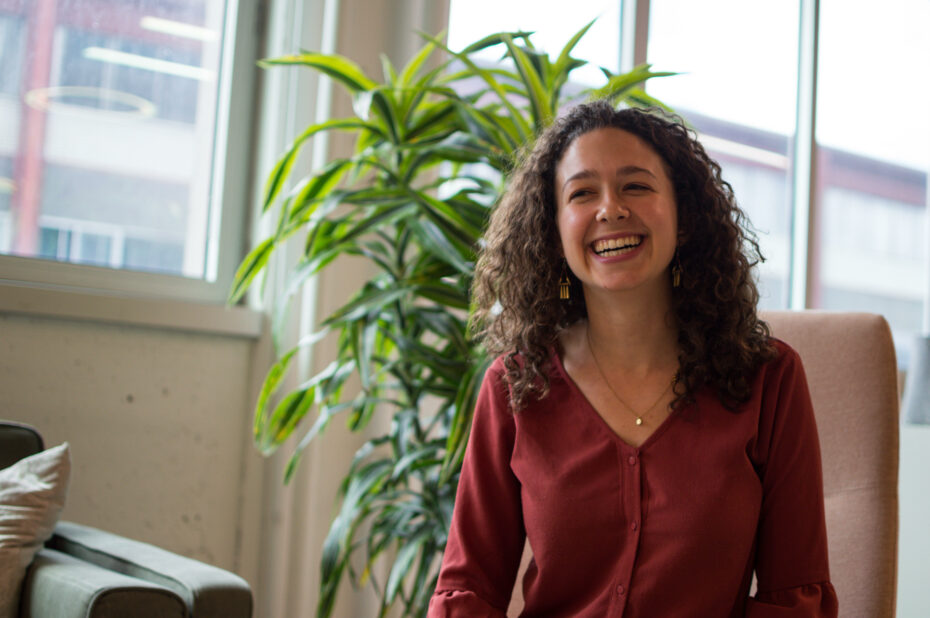
Jessica has worked tirelessly to design and roll out the CommunityFirst COVID-19 Roadmap, an emergency readiness planning tool, to communities in Nunavut, Latin America, and Kenya. She has created connections among women at the front-lines of the pandemic, and through these partnerships has facilitated the development of community-driven initiatives. Her focus on holding communities at the heart of crisis response demonstrates her genuine compassion and solidarity with women.
Jessica graduated with a B.A. International Development from McGill. She has contributed research to the McGill Institute for Health and Social Policy, the McGill Journal of International Development Studies, the Journal of Health Specialities, among others; and spent time working in migrant shelters in El Salvador, Mexico, as well as launching local initiatives for asylum seekers in Montreal.
Elham Emami, Dean, Faculty of Dentistry on Marie Curie
The quotes of Marie Curie, first woman who won the Nobel Prize, have been the source of my inspiration.
“Life is not easy for any of us. But what of that? We must have perseverance and, above all, confidence in ourselves. We must believe that we are gifted for something, and that this thing, at whatever cost, must be attained.”
Angela Karellis, Postdoctoral Fellow at the MUHC and RI-MUHC, on Nikita Pant Pai
It is my honour and privilege to name my postdoctoral fellowship supervisor, Dr. Nitika Pant Pai, Associate Professor in McGill’s Department of Medicine, as my inspiration for International Women’s Day.
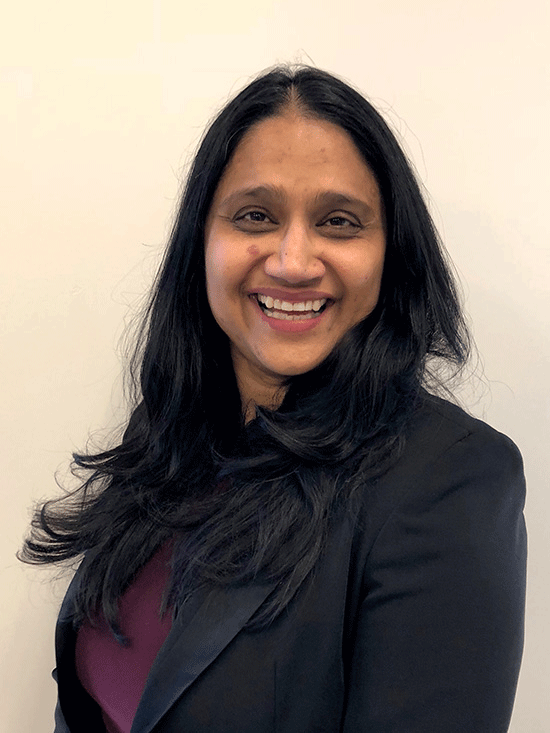
Dr. Pant Pai, MD, MPH, PhD was ahead of her time in developing and evaluating digital strategies to reach vulnerable populations as of 2008. While near-impossible to name the lengthy list of her several accomplishments, some of her noteworthy endeavours include her research to improve screening for sexually-transmitted infections (STIs), from HIV self-testing to multiplex rapid testing to screen for numerous infections simultaneously. Her work improves access to rapid diagnostics, i.e. screening methods that allow to obtain same-day results for STI testing, and sexual and reproductive health, the latter particularly for young girls worldwide. She is a pioneer in the field of infectious diseases and global health, as exhibited by her numerous honours, awards and leadership roles such as at McGill’s Summer Institute.
As a firm believer in early and rapid diagnostics and preventive medicine, I am honoured to be mentored by Dr. Pant Pai and participate in her research aiming to fulfill the vision of aiding those most in need in multiple areas globally. Not only does she achieve her set goals, she instills passion and innovative thinking upon her trainees. In all my years of study, her leadership, above all others, has sparked a zeal for learning and innovation that I have never felt before.
Above all, I hope to follow her example and pass on this knowledge and motivation to young minds in my future profession. Evidently, as demonstrated above, Dr. Pant Pai epitomizes an inspiration to all, including myself, to set and fulfill our objectives and constantly strive to push beyond all boundaries.
Bruna L. Salhany, Accreditation & QI Administrator, on The Women of Thawra
I am a fifth-generation woman of the Lebanese diaspora (estimated to be at 15 million) whose ancestors chose Canada as their land of refuge. Yet neither time nor distance have severed the pull nor the attachment I feel for Lebanon nor the awe I have for its women.
The Land of the Cedars has survived quite a lot in the past year and a half: multi-generation economic crises which causes the youth to leave the country for education and employment abroad; rampant wild fires which consumed thousands year old swaths of land in Mount Lebanon; a corrupt ruling class and government nickel and diming the citizens to such an extreme that it launched the Lebanese Revolution (Thawra) on October 17, 2019; and the explosion at the Port of Beirut which occurred on August 4, 2020, caused by the illegal storage of a cache of ammonium nitrate and killing 207 people – to name a few.
Throughout all of these events, punctuated by the Coronavirus pandemic, the Women of Lebanon and of the Thawra have been at the forefront of saying enough; of acting as human shields so that protesters would not be beaten nor shot by armed forces and militias; of mobilizing allies across religious divides; of promoting an environmental agenda during the Thawra protests and organizing recycling drives; but most of all, of speaking truth to oligarchical Power.
Speaking the Truth is not always convenient nor welcomed. The Thawra created the platform on which issues affecting the Women could be brought to light: the shaming of sexual harassment and assault victims; LGBTQ decriminalization; the right for a woman to pass her nationality onto her children so that they could enjoy full rights as citizens of Lebanon; of having equal standing in a court of law – not affiliated with a religion – to assert her parental rights; of security forces acting on the national laws which protect women from conjugal violence.
The Women of Thawra are Lebanon, and now the country’s conscience is shook. It cannot un-hear the issues which have been collectively spoken out loud.
That is not only inspiring to me, but also aspirational.
Audrey Moores, Canada Research Chair in Green Chemistry, on her grandmother
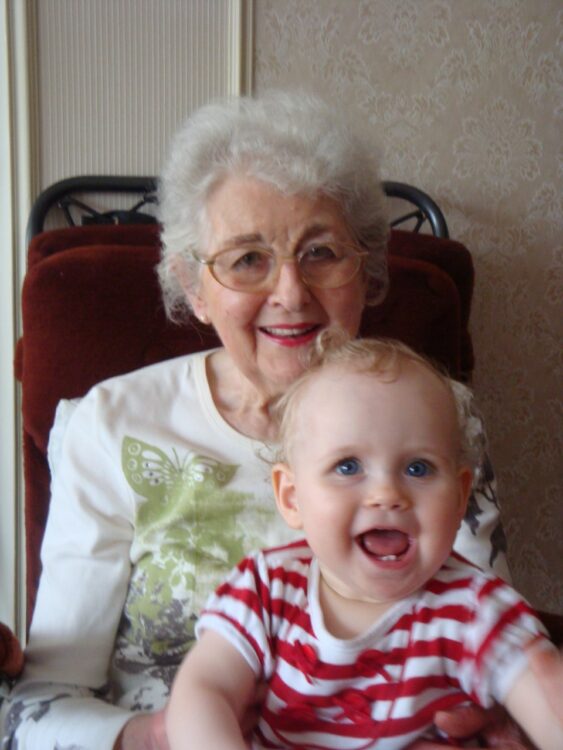
My grandmother has been incredibly inspirational to me and really seeded in me the idea I could be a scientist. She did not go beyond middle school, but she just had a passion and curiosity for nature and she simply explored and tried things for herself. She raised a baby bat, and autopsied it when it accidentally died, she raised bees, and followed storms to watch lightening events. On this day I think of her.
Antoine-Samuel Mauffette Alavo, Black Student Affairs Liaison, on Shanice Nicole Yarde
My pick would be my colleague Shanice Nicole. She recently published a book which you can read more about here.
I have been inspired by Shanice’s work since the first time we worked together. From her spoken word poetry, activism to the efforts made to address inequality on campus, I was always blown away by her tireless work ethic and ability to resonate with everyone. The work she accomplished particularly to further a sense of belonging for Black staff and students and to launch the celebration of Black History Month at McGill stand out the most.
Rachel Desjourdy, Accessibility Advisor, on bell hooks
As a graduate student, I had the pleasure of attending a lecture presented by bell hooks. Beyond the actual content of her lecture, which was excellent, she happened to mention that she did not own a television and read a book a day. Since then, I have set little goals to read more and watch less. It started by trying to see if I could read a book a week, and last year’s goal was to read 100 books. Her example of conscious curation of what media she consumes is something that still inspires me, all these years later!
Wendy Ampuero Reyes, MSc. Student, Department of Geography, on Tempora
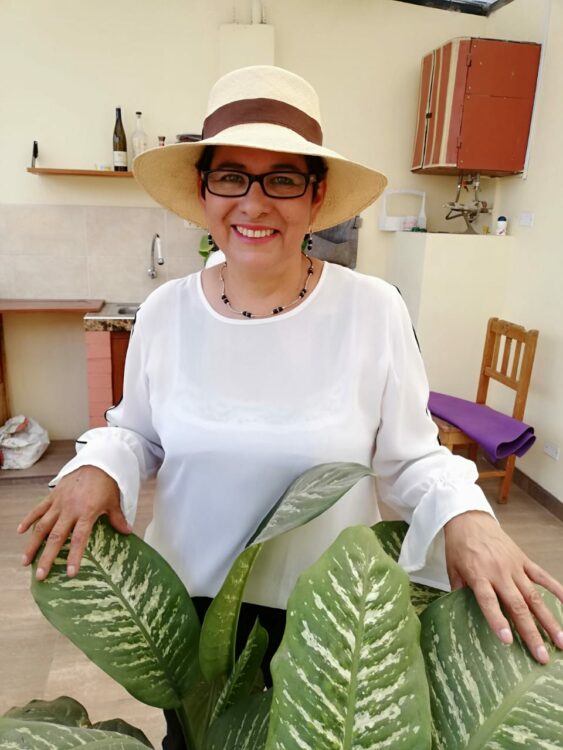
I’m sending my story as a way to celebrate the International women’s day.
She’s Tempora, an extraordinary woman and the one who has been inspired me my whole life so far. My mom was born and raised by my grandparents, who are local farmers in a remote village in the highlands of Huaranchal, in Peru. Afterwards, she moved and settled down in Lima’s capital city to continue her studies to become the first generation to go to the university. Now, she’s a professor, social worker and police officer.
She taught me that there’re no barriers for women at any age, and we’re the only ones who can make our dreams come true. We can face everything with courage, and also with a kind heart thinking of others’ needs. And as you know that life is so unpredictable, last year my mom had to deal with breast cancer, two surgeries and positive results for covid-19, and because of her strength and desire to continue enjoying life, she won!
Therefore, I want to celebrate her victories on this special day. She’s a warrior and a fighter, if she can do it, I can and you too! Just go for it, girl!
Divine-Favour Ofili, BScPH, M.ScPH candidate, on Regina and Eucharia
Today, I wish to celebrate two women who have been (and continue to be) a huge inspiration to me: My two mothers!
- My mother, Regina.
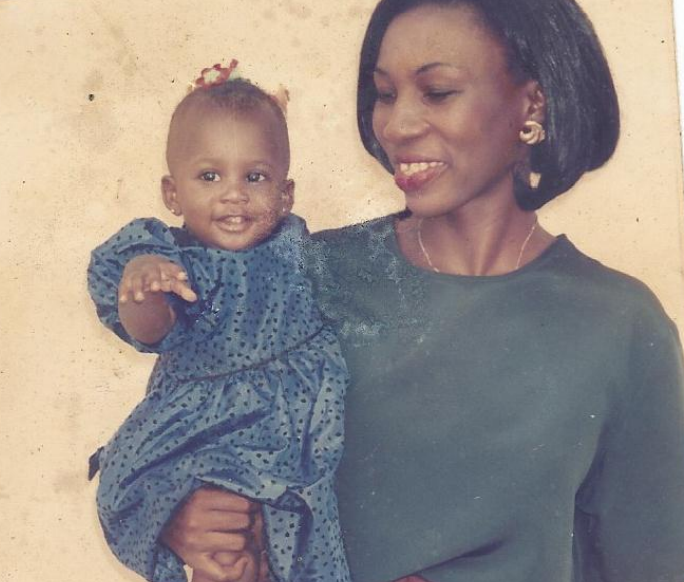
Her name is Regina. A queen indeed she is! Having to cater for me in her womb whilst she completed the most difficult parts of her Master’s program alone, to being my biggest strength when I feel alone; during my master’s program. No one does it like my mother. No one loves and cares for all the way she does. She was one of the lead figures in the Destiny Child Centre project in Calabar, Nigeria. This project ensured that abandoned and over-laboured children in Calabar were housed, clothed, fed, schooled and rehabilitated. Watching her, my motivation to improve the health of vulnerable populations was imbued so early in life. I walk up the academic ladder, following her steps! Now, just like my mum, I’ll be a doctor (academic doctor), improving the health of vulnerable populations. All hail the queen, Regina!
- My mother, Eucharia.
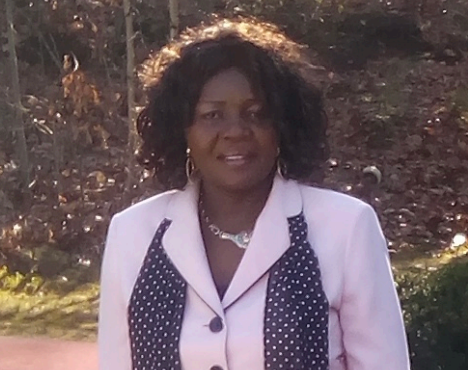
I pride myself in the realization that I grew up with a wonderful family who instilled great values in me. I had to stay with my mum’s sister for a good portion of my developmental years. I never called her aunt; she was my mother! Through her I learnt the act of giving. She has inspired me to help in any way I can to alleviate someone’s burden. I wish the world had a heart like hers. Today, I have every cause to celebrate her. She is a hidden hero I know. Her name, Eucharia!
Sarah Delisle, Emergency Planning Officer, Campus Public Safety on McGill Daycare educators
To be honest, this year with COVID turning things upside down, the women who inspire me are the educators at the McGill Daycare. Lisa Gallagher and the team are so focused on safety and providing a caring and nurturing environment for the kids. With so many changes and the constantly evolving situation over the past months, their steadfastness and commitment are extraordinary and so reassuring as a parent. The ease of mind that comes with this is fundamental in helping me focus on my work – their impact has been immeasurable.
Jayne Watson-Sevigny, Senior Library Clerk Humanities and Social Sciences Library, on Dara Charney
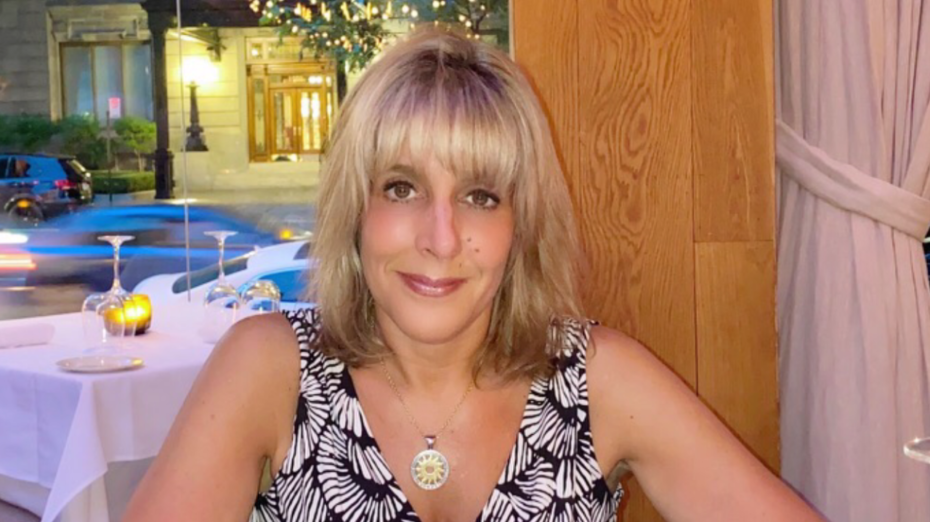
Dr. Dara Charney has been an amazing influence in my life. I first met her when I was working in Postgraduate Psychiatry at McGill and she taught me how to be strong, consistent, organized, professional, humble, appreciative and most importantly to be proud of who I am and to never under estimate what I am able to accomplish.
She has made a major impact in my life and I can never express to her how much I value the lessons and ethics that she instilled in me.
She was always there for me when I needed her – both professionally and personally! Through laughter and tears – I can never thank her enough.
Annmarie Adams, Chair, Social Studies of Medicine, on Peta Tancred, Kaye Adams and McGill’s women students
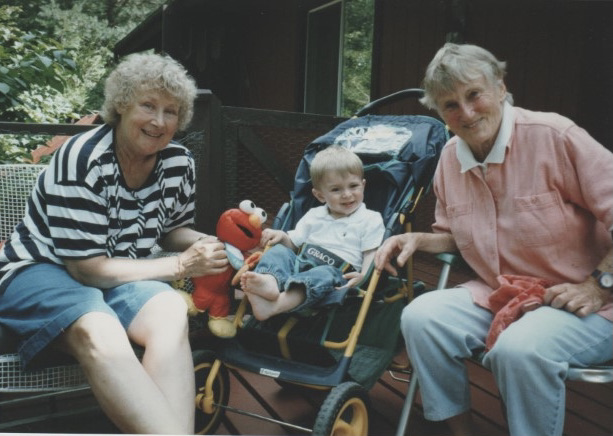
When I first arrived at McGill in 1990, and for more than 20 years, I was the only full-time woman faculty member in the School of Architecture, so I looked to other units and faculties for sisterhood. A huge inspiration and support for me was sociologist Peta Tancred. Peta taught me how to write a grant application; how to manage a research group; how to run a meeting efficiently. We wrote a book together in 2000. Sadly, she died in 2017. I wrote about our time together here.
My mother Kaye Adams was a role model and source of strength for me. With no formal education in design, she had a sharp eye for architecture, art, interiors, fashion, and colour. She also had an extraordinary ability to put people at ease. She mostly did this through renowned baked goods and concise language. Always positive and decisive, she was known to answer nearly any yes-or-no question with two words: “You bet.”
When we think of role models, many of us immediately turn to women who came before us, leading the way. On this International Women’s Day, however, I’d like to signal the inspiration of McGill University’s women students. Every day I’m inspired by their strength, insights, optimism, courage, and creativity. They get it. The future is bright thanks to them.
Chris Buddle, Associate Provost (Teaching and Academic Programs), on Angela Campbell
I’m inspired by Associate Provost Angela Campbell – a colleague, mentor, and friend. She is an amazing leader at McGill, working on some of the most complicated and challenging issues at the University. She listens carefully, is thoughtful, intelligent, and a true inspiration to many. We learn so much from Angela, and I’m grateful that she is part of our community.
Laurie Devine, Manager, Social Media, Vice-Principal (Communications and External Relations), on Angela Campbell
On IWD I admire Angela Campbell. As an administrator in a difficult role with some tough issues, she’s sharp, hard-working, compassionate, and gets things done. Despite her busy schedule she always has time to provide advice, answer questions. She is non-hierarchical in that she values everyone’s skills and input equally and has a unique ability to bring people together to build alignment to solve problems.
Jim Nicell, Dean, Faculty of Engineering, on Queen Elizabeth I
I went for a long walk this morning to try and figure out who was an inspiration for me. My thoughts kept returning to one person in particular.
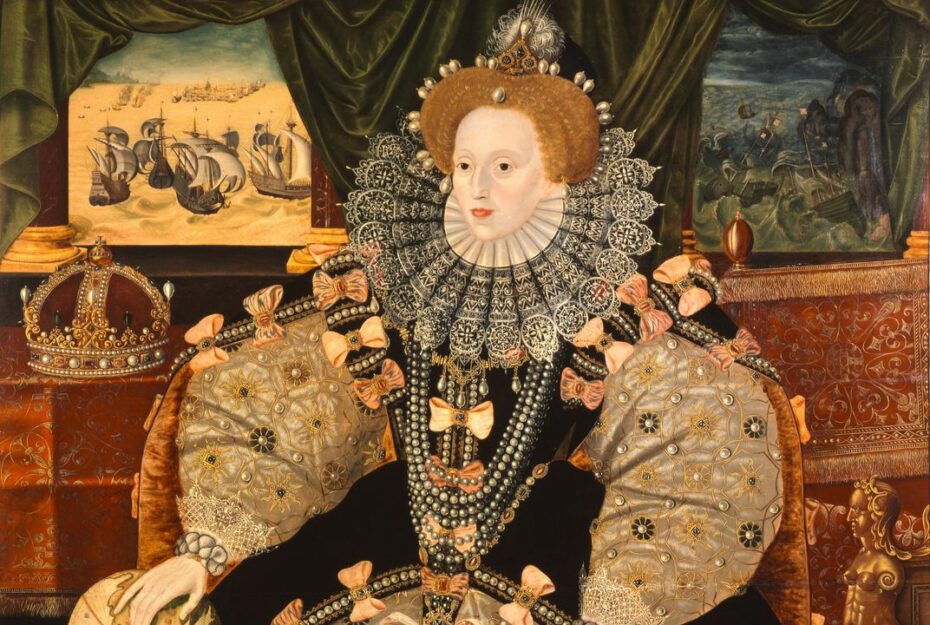
As a voracious reader of history, I have to say that one of the most powerful and interesting persons who has had a strong influence on me is Queen Elizabeth I of England. When I first read a biography of her almost 20 years ago, I was particularly intrigued to discover that a woman like her – with enemies all around, and mostly men who dominated others in patriarchal systems of state and church, and many of them plotting her demise – was able to somehow bend a system that was stacked up against her and establish her own place in it for the long-term better of her country.
Elizabeth I was no saint, but she seemed to have an intuitive knowledge of all the forces around her – the ones working for and against her – and she carefully used her influence to consolidate her position over time and strengthen her country. I think that nobody in their right mind would ever have predicted that she could become one of the most influential leaders in history, let alone survive to ascend the throne and retain it until her death. If there is any inspiration that I get from this, it is that a person who understands the competing forces in the system around them, and exerts their efforts with focus and determination, can change that system. In a sense, I think that she inspired me to learn from history.
Caitlin MacDougal, Liaison Officer, Macdonald Campus, on Neva Shelton
I’ve been thinking about it, and there are SO many women who inspire me, from my mom and family members to my great colleagues at Mac. But one person I’d like to celebrate in particular is Neva Shelton, who has owned and operated her own ballet school, L’École de danse Neva Shelton in the Chateauguay Valley for over 40 years.
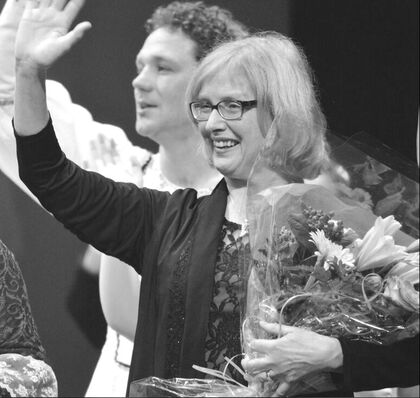
I started taking classical ballet at the school when I was four years old. From about age 8 to 19 I took classes from Neva herself, performing in The Nutcracker, Sleeping Beauty and other ballets. From age 16 to 19 I helped as an assistant teacher and then a teacher for the youngest age groups, and I took classes again from age 22-24 as well.
Neva has always been a role model for me, as someone who inspired and shared her love of dance with hundreds of kids over the years, expanding the performances, the school and her clientele. She was always patient and kind and a great employer. Neva was always willing to write a reference letter for a scholarship or a job. She gives back to the community and cares about her students, long after they go on to other things.
In October 2020, after a 10-year hiatus, I started taking weekly ballet classes again with Neva on Zoom, and I really love it! She has adapted her business to work in the pandemic, and you can see she is just as passionate about ballet as she was when I first started dancing 30 years ago. Neva has impacted my life in so many positive ways – she helped me to develop my confidence, she taught me the value of hard work and practice, and how to have high standards while still being empathic and kind. Thanks to Neva, I value work-life balance and the importance of having a creative outlet or hobby.
David Eidelman, Dean, Faculty of Medicine and Health Sciences, on Marie Skłodowska Curie
There are many great women who have inspired me, so any choice is to a degree arbitrary. However, if I must choose, other than the women in my life (especially my wife, Brigitte), one woman who has greatly inspired me is Marie Skłodowska Curie, who sets the benchmark for greatness in science. Marie Curie won Nobel Prizes in both Physics and Chemistry, one of only two people to have won Nobels in different categories. Remarkably her daughter also won the Nobel Prize in Chemistry. Marie Curie combined her scientific brilliance with great humanity, triumphing over personal tragedy, as well as outrageous xenophobia and sexism, to establish an unmatched legacy of excellence. An early precursor of the Open Science movement, she declined financial rewards, choosing instead to share her discoveries with the world and giving her prize money to the institutions where she worked. In short, an extraordinary and inspiring person in every way.
Em Walsh, PhD student philosophy, on Kiran Basra

I’d like to nominate one of my students in philosophy at McGill as one of my inspirational women: Kiran Basra. She’s helped me to set up a Womxn in Philosophy group at McGill (to help address important social issues which arise from philosophy being heavily male dominated) and has helped me organize writing workshops for women which help build their confidence. In the time I’ve known her she’s been so selfless and kind to everyone she interacts with, always inspiring others to follow their dreams. She’s a phenomenal woman and an incredible student who inspires me to become a better teacher. I’m very blessed and grateful to know a woman like her.
Sean Goldfarb, a Master’s student in Cell Biology, on Rachel Carson
A woman who inspired me since I was young is Rachel Carson. I read her seminal book Silent Spring when I was 17, cover to cover, after seeing a documentary on her work and life. I was blown away by her prose, never thinking in a million years that an academic could write so accessibly and poetically. Her voice continues to inspire me to try to write my own works in such a spirit.
She was also a good scientist. She observed and was distressed by the fact that songbirds and others birds were dying en masse; in fact, by 1963, with only 463 nesting pairs left, the bald eagle was almost driven to extinction. But through research, she eventually linked this death to the use of pesticides like DDT. She also asserted that it likely has effects on other animals like humans. This wasn’t popular with the pesticide companies though, and they embroiled her in defamation lawsuits in her final years while fighting cancer. She was a soft-spoken woman, yet she took on some of the most powerful companies at the time and in doing so saved the birds. This courage to speak the truth inspired me then and, given all the contemporary issues surrounding truth, inspires me even more so now!
Finally, she wrote a book in her last years called The Sense of Wonder. I haven’t read it personally (yet!), but it’s about how cultivating a sense of wonder is crucial for children (and their parents) if we are to appreciate the world around us. I’ve recently decided to become a teacher and her writings on this inspire me to instil in my future students a sense of wonder.
Darshan Daryanani, Bachelor of Arts ’21, on his mother and sisters
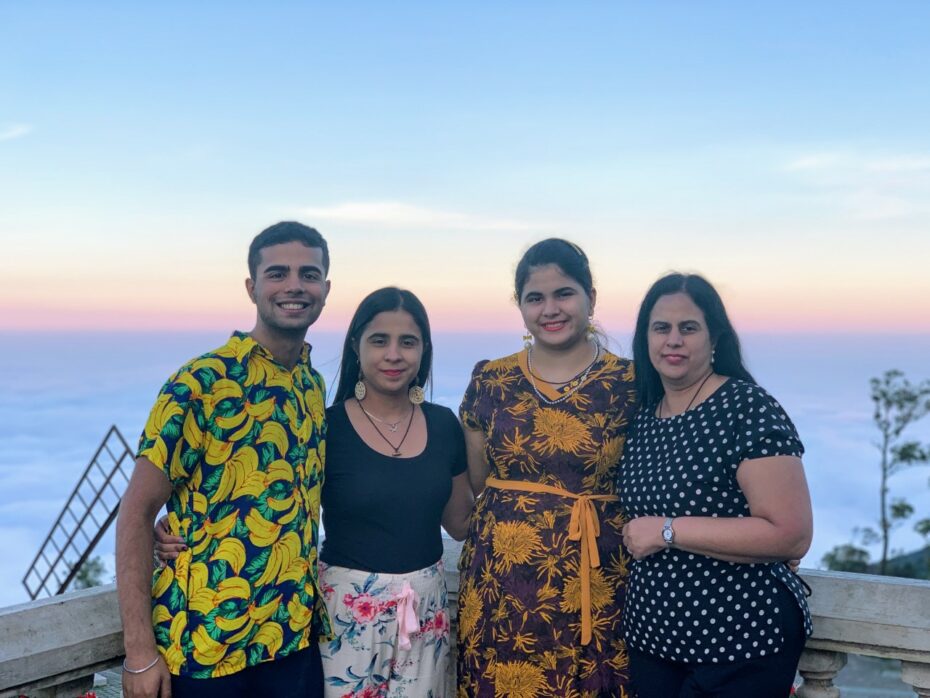
Susan Bartlett, Professor of Medicine, Divisions of Clinical Epidemiology, Rheumatology and Respiratory Epidemiology and Clinical Trials Unit, on women who answered the call during COVID
It began with a call about 8:30 one evening last March from my sister-in-law, a family doctor in rural Eastern Ontario. Could I make her some cloth face masks? She was worried she would soon run out as concerns grew about dire shortages of PPE in Canada. She asked for 20, but within 48 hours, asked if 160 would be possible for other docs in their small community. As a member of the Beaconsfield Quilters Guild, I reached out to Guild president Fay Blenkhorn, a retired nurse who used to run the Cardiac Cath Lab at JGH. By the next morning, Fay had mobilized members ready to move into action. Researchers at Wake Forest University had identified that the high-quality cotton that quilter’s typically use was the optimal material to use for cloth masks.
We reached out to programs and clinics at MUHC, MGH, MCH, JGH, Lakeshore and Ste-Anne Hospitals, and CHSLDs, CLSCs, and Walk-in Clinics. In the first week we delivered 1,000 masks, but quickly had requests for many more. Soon, Fay had organized a small army of Guild women sourcing, washing, ironing, and cutting fabric and elastic, sewing masks, and distributing supplies and masks seven days a week.
McGill R/MUHC rheumatologist Sasha Bernatsky connected us with her Aunt, an expert sewist. She in turn recruited friends in Montreal and Ottawa also willing to donate fabric and sew masks. (A special mask for Infectious Diseases specialist Dr. Brian Ward from fabric his late mother had given to her years ago.) Some sat at their machines making up to 70 masks a day. Within a matter of days between 30 and 50 women, mostly members and new friends, dug into their prized stashes of quilter’s fabric. An urgent need proved to be elastic, which was at the time under federal oversight given world-wide shortages. CAN-SEW, a local distributor on Chabanel, provided much needed elastic at cost. From the last week of March through the end of May, we donated more than 20,000 cloth masks.
Here’s to celebrating women in our community who saw a need and opportunity to use colour and joyful patterns to let our health care providers and patients know the community was behind them in difficult times.


Such an inspiring read!